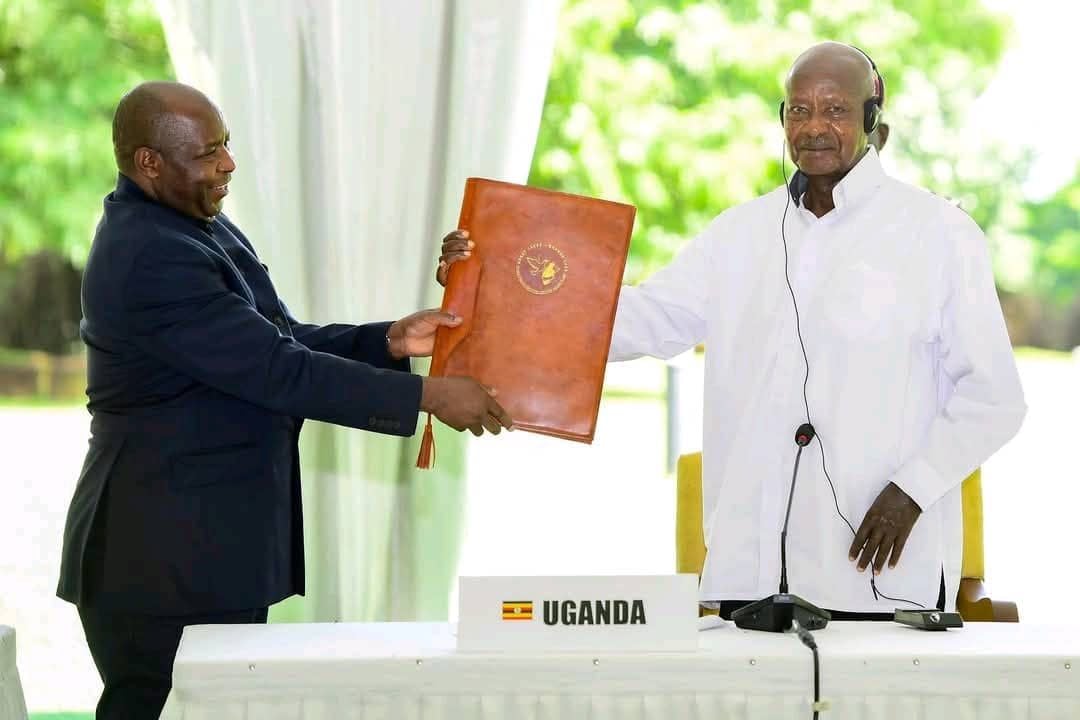Museveni Takes Helm of Great Lakes Peace Forum, Warns Against Foreign Meddling

President Museveni has taken over the chairmanship of the Regional Oversight Mechanism (ROM) of the Peace, Security, and Cooperation Framework for the Democratic Republic of the Congo and the Great Lakes Region, vowing to promote African-led solutions to longstanding instability.
The handover took place at the 12th high-level summit of the ROM at State House Entebbe, where Burundian President Évariste Ndayishimiye formally passed on the leadership to Museveni for a two-year term.
Addressing leaders and delegates from across the region, Museveni warned that persistent foreign involvement in eastern DR Congo’s affairs continues to fuel ethnic divisions and undermine peace efforts.
“Because we know what the problem is, and it can be solved, but we must have the political will, and foreigners should limit their involvement, because foreigners are the ones who carelessly embolden the mistake,” Museveni said.
The PSC Framework was established in 2013 under the auspices of the United Nations, African Union, the International Conference on the Great Lakes Region (ICGLR), and the Southern African Development Community (SADC), aiming to provide a collective response to recurring conflict in eastern DR Congo.
Museveni attributed the region’s instability to what he called ideological missteps and externally-backed identity politics, drawing historical parallels to the leadership of Mobutu Sese Seko in DR Congo and Juvenal Habyarimana in Rwanda.
“What is difficult are the three mistakes: philosophy, ideology, and strategy,” he said, stressing the need for homegrown leadership in tackling these challenges.
“We now know the problems, and we can solve them. These are our people—Rwanda, Burundi, Eastern Congo, Tanzania, Kenya.”
President Ndayishimiye pledged his country’s full support to Museveni’s leadership during the transition and urged continuity in regional cooperation.
The summit drew representatives from Uganda, Angola, Burundi, Congo-Brazzaville, DR Congo, Kenya, Rwanda, South Africa, South Sudan, Sudan, Tanzania, and Zambia.
Observers from the UN, AU, and ICGLR also attended, reaffirming the Framework’s commitment to regional solutions.
Leaders reiterated the need to reduce insecurity in the region by addressing its root causes and strengthening accountability among signatory states.
Museveni’s tenure is expected to test whether the Framework can move from rhetorical commitments to practical, locally owned outcomes.



0 Comments